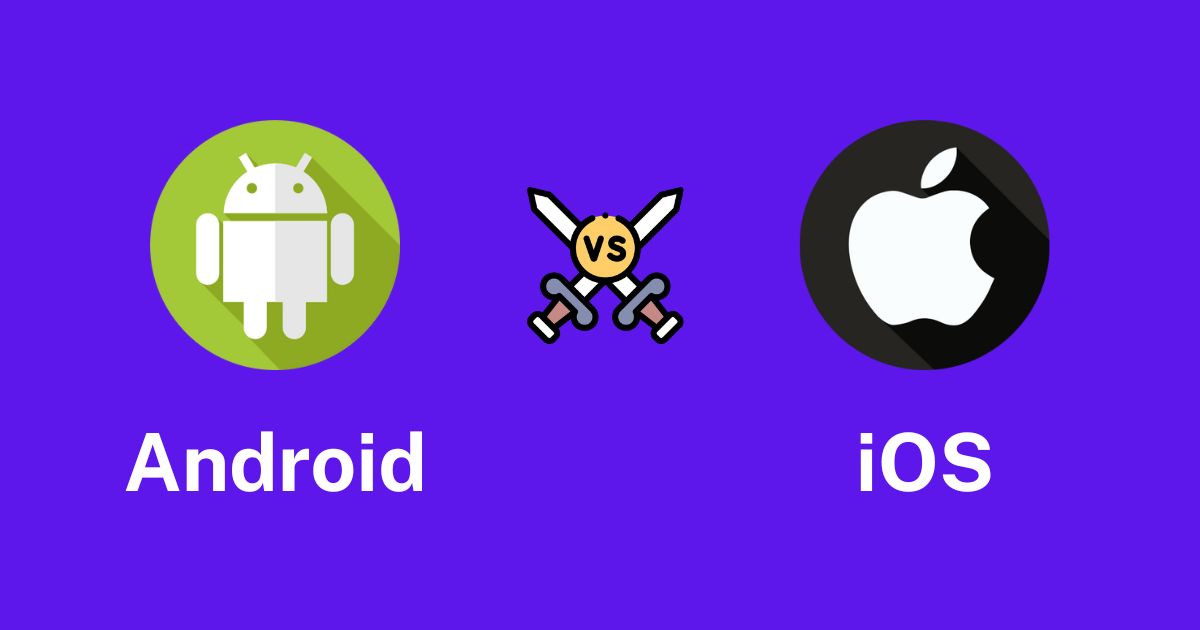-
Encircle Technologies
-
December 7, 2022
-
App Development
-
Encircle Technologies
-
December 7, 2022
-
App Development
-
Back Page
For those starting an online business, having a website is a must. But for those who want to scale their existing business online, having a mobile app can help a lot.
Android and iOS are the most popular smartphone operating systems in the world. Android has a market share of around 71%, while iOS holds around 28% of the market share (other OS hold the remaining 1%).
Take a look at these stats:
Nearly 90% of mobile internet time is spent on apps.
Overall, 3.8 trillion hours were spent using mobile apps in 2021.
Mobile internet usage is rising while desktop internet usage continues to fall.
There are around 6.37 billion smartphone users across the globe.
On average, about 70,000 new Android apps are released in the Google Play Store every month.
On average, about 32,000 new iOS apps are released in the Apple App Store every month.
From the above stats, you can estimate how massive the app development industry is.
Direct marketing, improving user experience, and improved visibility are some advantages of having a mobile app.
If you are just getting started and can’t afford to develop & manage both, it’s okay to start with one operating system. Later on, you can scale and start working on another one.
Android Development

Android is an open-source mobile operating system with a huge audience base. With around 71.86% market share in the app development industry, not having an Android app means missing out on the potential to reach a massive number of users from across the globe.
Android SDK (Software Development Kit) is the main advantage of Android development. It is a set of development tools used to develop applications. It includes required libraries, an emulator, a debugger, relevant documentation for APIs, sample source code, and tutorials.
Another good thing about Android development is, it can provide immersive returns with low investment. As compared to iOS, distribution cost is a lot cheaper. To make the app live on Google Play Store, you need to pay a one-time fee of $25.
iOS Development

After Android, iOS is the second most popular mobile operating system with a massive user base. The good thing is that the majority of the audience base is from highly developed countries like the USA, UK, Canada, Sweden, etc.
While the Android app helps you drive more eyeballs, the iOS app helps you get in front of a high-quality audience. As a result, it drives more conversion and more revenue.
Another good thing about developing an iOS app is improved security. While Android makes it easier to develop exploits, Apple uses a closed development operating system which makes it difficult for hackers to develop exploits.
Talking about app distribution cost, iOS is on a bit higher side, but it’s worth it. It costs $99 per year.
Android Vs iOS Development
Before selecting Android or iOS for app development, check out the following points. We have compared both based on factors like target audience, revenue, testing, launch, etc.
Target audience
The best way to figure out whether you should create an Android app or an iOS app for your business is by understanding your audience.
There’s quite a lot of difference between the user base of Android and iOS. Whether you should start with Android or iOS app development is based on factors like your product/service, target market, target audience’s income level, etc.
One of the significant differences between Android and iOS is their customer base. Android, on one hand, has the majority of its audience base from developing countries like India and China. On the other hand, iOS has the majority of its audience base from developed countries like the United States, the UK, Canada, and Sweden.
Revenue
In terms of revenue, iOS is the winner. Although Android has a higher market share, the majority of its audience has low spending power. As a result, the revenue potential with Android is lower. On the other hand, iOS users have more spending power; they tend to have a higher LTV (lifetime value).
In the end, it comes down to your product/service. If whatever product/service you offer delivers so much value to your audience, you can generate a huge conversion rate with Android itself.
App development time & complexity
Do you want to develop & launch your application as soon as possible? Well, in that case, iOS is the right choice. iOS saves a lot of development time. Talking about programming languages, Android uses Java, while iOS uses Swift. Swift is Apple’s native programming language. Android is an open-source platform, while iOS isn’t. In terms of complexity, iOS is easier than Android.
Publishing cost
Android charges $25 as a one-time registration fee for the developer account. Once you pay it, you can publish as many applications as you want for free. iOS, on the other hand, charges $99 per year.
Post-launch maintenance
When it comes to app development, post-launch maintenance is critical. As a developer, you want to make sure users don’t come across any bugs or crashes. The main problem with Android is, the majority of Android users stick with older versions.
As a result, users with outdated Android versions find bugs and crashes in new apps. Due to this problem, post-launch maintenance is high with Android. On the other hand, iOS post-launch maintenance is cheaper.
Final Thoughts
When deciding on which platform to build your app first, consider factors like your target audience, budget, development time, user location, etc. After the app is ready on one operating system, you can start working on another one.
If you want to develop a beautiful & fully-functional Android or iOS app for your business, Encircle Technologies can help. We have a team of experienced developers, specializing in popular mobile app development technologies.
For any query, feel free to contact us at support@encircletechnologies.com
